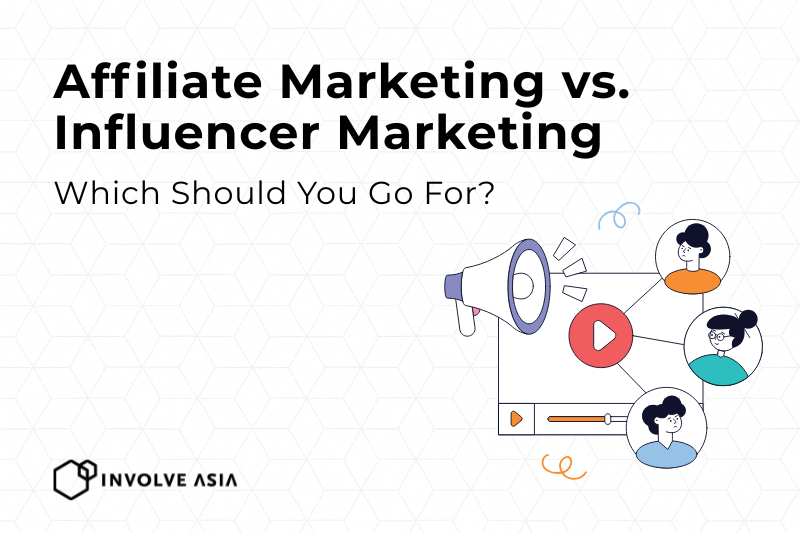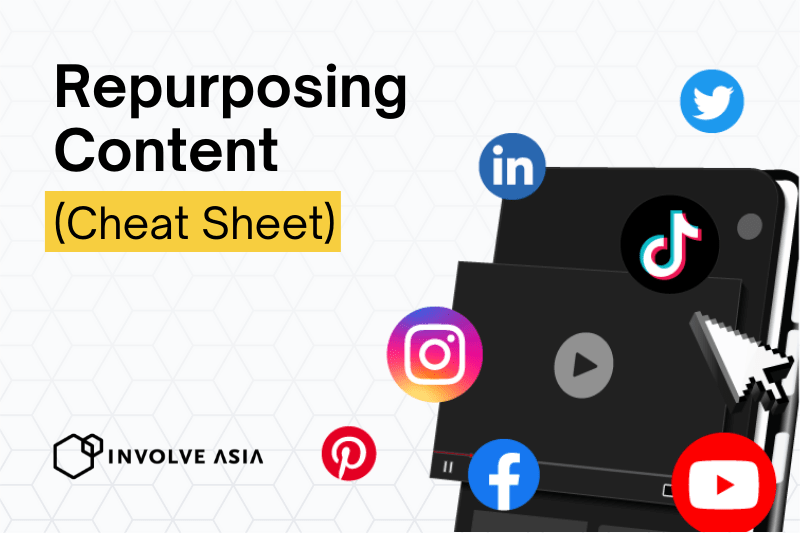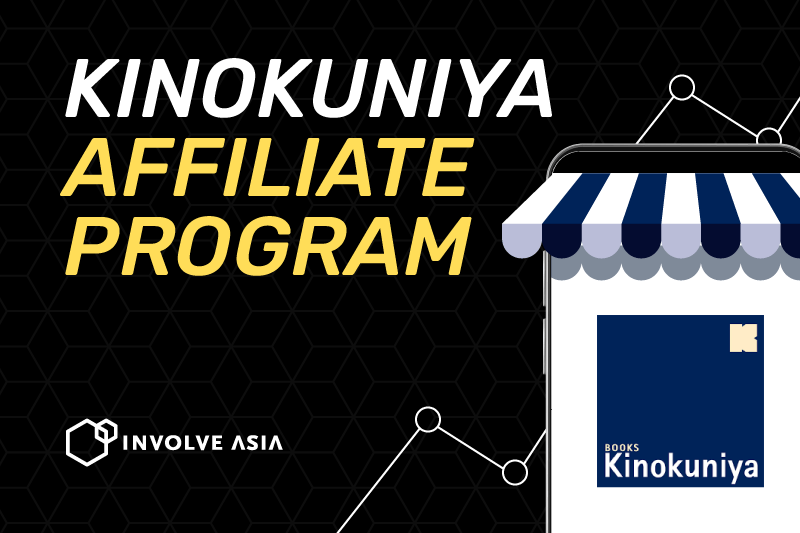Are you looking for the best way to make money online? The two most popular models today are affiliate marketing and influencer marketing. While both can be highly profitable, they operate in distinct ways.
Affiliate marketing involves promoting products for a commission, while influencer marketing focuses on building an engaged audience and collaborating with brands for paid promotions. But which one is better for you?
Let’s explore the differences between affiliate marketing vs influencer marketing, their pros and cons, and help you choose the right path for your online business success.
What is Affiliate Marketing?
Affiliate marketing is a performance-based online business model where you earn commissions by promoting other companies’ products or services. This model allows individuals to generate passive income by driving traffic to affiliate links.
3 Ways Affiliate Marketers Earn Money
Affiliate marketers earn through various commission structures, including:
- Cost-Per-Sale (CPS) – Earn a percentage of the sale when someone purchases through your link.
- Cost-Per-Click (CPC) – Get paid based on the number of clicks your affiliate link generates.
- Cost-Per-Lead (CPL) – Receive commissions when users sign up for trials, email lists, or other conversions.
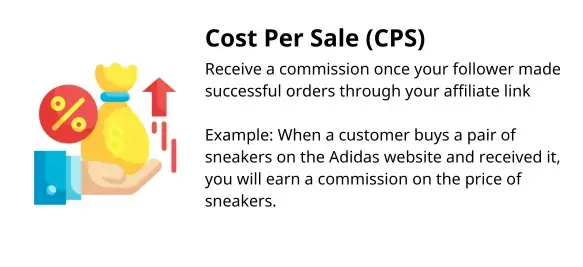
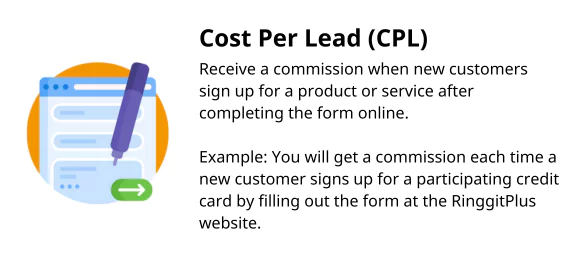
4 Benefits of Affiliate Marketing
Affiliate marketing is a popular choice for entrepreneurs due to its many advantages:
- Passive income potential – Once set up, you can generate revenue 24/7.
- Low startup costs – No need to manufacture products, manage inventory, or handle customer service.
- Scalability – You can promote multiple products in different niches, diversifying your income streams.
- Flexibility – Work from anywhere with an internet connection.
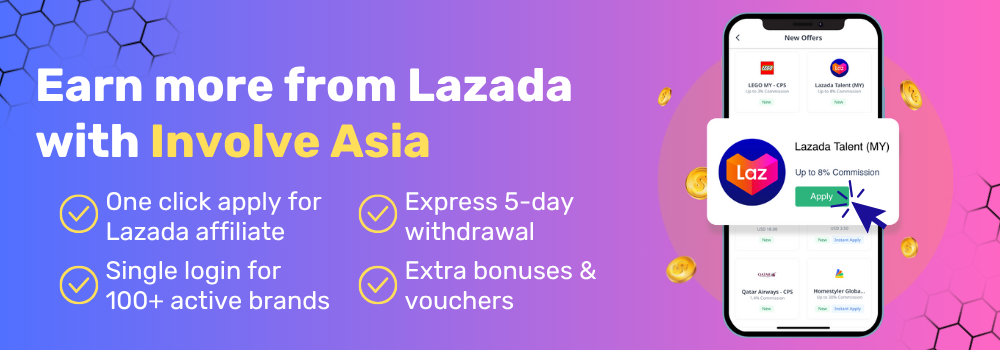
3 Challenges of Affiliate Marketing
Despite its benefits, affiliate marketing comes with challenges:
- High competition – Many affiliates promote the same products, requiring strong SEO and marketing strategies.
- Delayed payments – Some programs take 30-90 days to release commissions.
- Brand dependency – If a company changes its affiliate program policies, your income may suffer.
What is Influencer Marketing?
Influencer marketing is a strategy where content creators collaborate with brands to promote products to their audience on platforms like Instagram, TikTok, YouTube, and blogs. It relies on authenticity and engagement to influence purchasing decisions.
4 Ways Influencers Earn Money
Influencers make money through multiple income streams, including:
- Sponsored posts – Brands pay influencers to feature products in their content.
- Affiliate links – Some influencers use affiliate marketing as a secondary revenue source.
- Product collaborations – Influencers co-create or endorse exclusive brand products.
- Ad revenue – Monetization through platforms like YouTube (Google AdSense) and TikTok Creator Fund.
3 Benefits of Influencer Marketing
Influencer marketing has huge earning potential for content creators:
- Personal branding – You become a trusted expert in your niche, increasing credibility.
- High earnings per post – Top influencers can earn thousands of dollars per sponsored collaboration.
- Direct audience connection – Strong engagement rates lead to higher conversion rates for promoted products.

3 Challenges of Influencer Marketing
While influencer marketing is rewarding, it also comes with challenges:
- Constant content creation – Success requires consistent posting and audience engagement.
- Algorithm dependency – Social media algorithms can limit reach and visibility, affecting income.
- Brand negotiations – Pricing, contracts, and deliverables must be well-managed.
- Trust maintenance – Followers may disengage if promotions feel inauthentic.
Key Differences Between Affiliate Marketing vs Influencer Marketing
| Factor | Affiliate Marketing | Influencer Marketing |
| Income Model | Commission-based | Sponsored content & brand deals |
| Startup Costs | Low | Medium to high (content creation, equipment) |
| Scalability | High | Limited by audience size |
| Risk Level | Moderate | High (algorithm changes, brand reliance) |
| Time Investment | Moderate | High (constant content production) |
Which Model is Better for Beginners?
Choosing between affiliate marketing vs influencer marketing depends on your skills and interests:
- Affiliate marketing is best for those who prefer passive income, SEO, and content marketing.
- Influencer marketing is ideal for those who enjoy content creation, social media, and brand collaborations.
- Affiliate marketing requires patience to build an audience and optimize for long-term revenue.
- Influencer marketing can generate quicker earnings if you have strong engagement.

Which One is More Profitable?
- Affiliate marketing offers long-term, passive income with consistent traffic sources (blogs, YouTube, SEO, ads).
- Influencer marketing can be more profitable short-term, but earnings depend on brand sponsorships.
You can also consider a hybrid approach, as many influencers integrate affiliate marketing to create multiple revenue streams from their existing online content.
Can You Do Both Affiliate and Influencer Marketing at the Same Time?
Yes! Many influencers use affiliate marketing as an additional income stream by promoting products alongside sponsored content.
How to Get Started with Affiliate Marketing
- Choose a profitable niche – Tech, finance, fitness, beauty, etc.
- Join affiliate programs – Involve Asia is a prime example!
- Create content – Blog posts, YouTube videos, social media posts.
- Drive traffic – Use SEO, paid ads, and social media marketing.
- Optimize conversions – Track performance, test strategies, and scale.
How to Get Started with Influencer Marketing
- Select a niche and platform – Instagram, TikTok, YouTube, or blogs.
- Create high-quality content – Focus on storytelling, visuals, and engagement.
- Grow your audience – Use hashtags, collaborations, and consistent posting.
- Connect with brands – Join influencer networks and reach out for sponsorships.
- Track results – Measure performance with analytics tools.
Conclusion
Both affiliate marketing and influencer marketing offers unique opportunities to monetize your online presence. If you prefer passive income, SEO, and digital marketing, affiliate marketing is the way to go.
If you love content creation, social media engagement, and working with brands, influencer marketing may be your best bet. Ultimately, the best model depends on your strengths and business goals.

Frequently Asked Questions (FAQs)
Is affiliate marketing the same as an influencer?
No, affiliate marketing and influencer marketing are different. Affiliate marketing focuses on promoting products using unique tracking links, earning commissions based on sales or leads. Influencer marketing, on the other hand, involves social media personalities collaborating with brands to create sponsored content.
While some influencers use affiliate marketing as an additional income stream, not all influencers participate in affiliate marketing. Influencers rely on brand deals and sponsorships, whereas affiliate marketers generate income by driving conversions. The key difference lies in how they monetize their audience and engagement.
What is the difference between influencer marketing and referral marketing?
Influencer marketing involves social media personalities promoting brands through sponsored posts, brand deals, and collaborations to their audience. It relies on the influencer’s credibility and reach to influence purchasing decisions. Referral marketing, on the other hand, is when existing customers recommend a product to friends or family, often receiving a reward or discount in return.
Referral marketing depends on word-of-mouth recommendations, while influencer marketing focuses on leveraging an influencer’s established trust and following to drive sales. Both strategies help businesses gain new customers, but their approaches and incentives differ significantly.
Is influencer marketing paid or earned media?
Influencer marketing can be both paid and earned media. Paid influencer marketing involves sponsored collaborations, where brands pay influencers to promote products through posts, videos, or stories. Earned influencer marketing happens when influencers organically mention or review a product because they genuinely like it, without any direct payment.
Most influencer marketing today is paid media, as brands invest in partnerships to ensure visibility. However, earned media—such as unpaid product reviews—can be just as valuable, as it builds authentic brand trust and credibility among an influencer’s audience.
Does affiliate marketing really pay?
Yes, affiliate marketing can be highly profitable, but success depends on strategy, niche selection, and traffic sources. Many affiliates earn anywhere from a few dollars to six-figure monthly incomes by driving sales through blogs, YouTube, social media, and email marketing.
The key to making money with affiliate marketing is consistent content creation, audience trust, and leveraging high-converting offers. While it takes time to build a steady income, long-term passive earnings are possible with SEO, paid ads, and an engaged audience. Joining high-ticket or recurring commission affiliate programs can significantly boost earnings.
